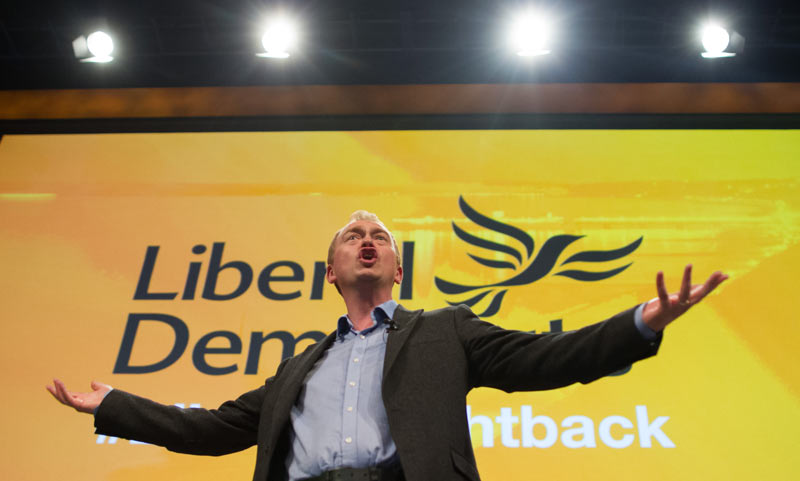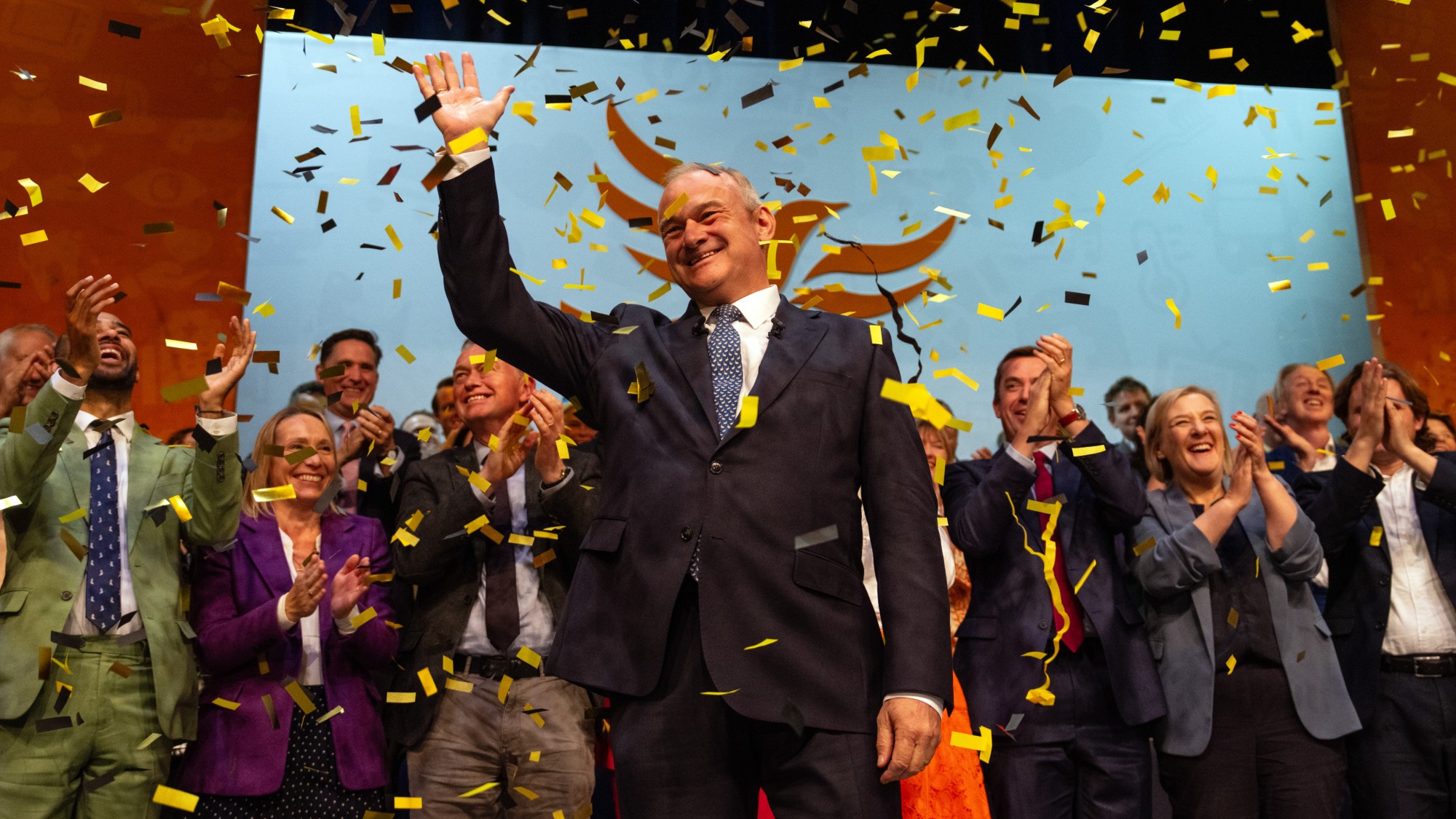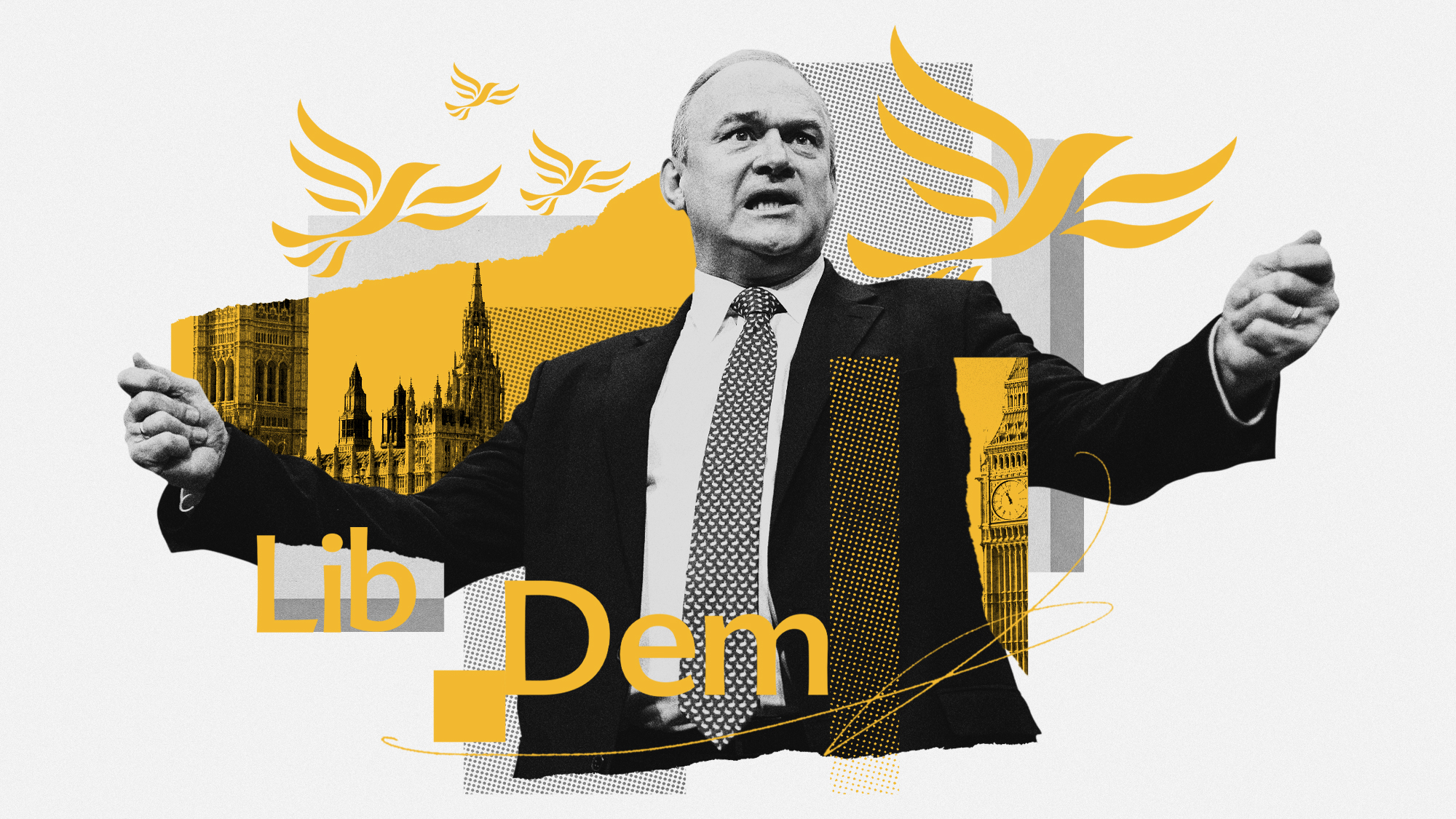General election 2017: Tim Farron - the Lib Dem leader facing questions over his views about gay sex
Here's what we know about the committed Christian who says he is 'liberal to his fingertips'

A free daily email with the biggest news stories of the day – and the best features from TheWeek.com
You are now subscribed
Your newsletter sign-up was successful
Liberal Democrat leader Tim Farron says he does not believe gay sex is a sin and that he is "liberal to [his] fingertips".
The 46-year-old MP for Westmorland and Lonsdale spoke out following repeated questions about his views on homosexuality. However, the issue has raised concerns over whether his Christianity influences his political decisions.
So who is Tim Farron?
The Week
Escape your echo chamber. Get the facts behind the news, plus analysis from multiple perspectives.

Sign up for The Week's Free Newsletters
From our morning news briefing to a weekly Good News Newsletter, get the best of The Week delivered directly to your inbox.
From our morning news briefing to a weekly Good News Newsletter, get the best of The Week delivered directly to your inbox.
Background
Born in Preston, Lancashire, Farron was brought up by a single mother, who he describes as a "Guardian-reading, liberal type". It was this upbringing that led to him reacting angrily to David Cameron's criticism of single-parent families after the 2011 riots, he told Total Politics.
He joined the Liberal Democrats at the age of 16, before studying politics at Newcastle University. However, during the 1980s, it was music that appealed - he was frontman for a band he says were a "fourth rate New Order". Despite his description, the group, known first as Voyeurs then Fred the Girl, managed to secure a recording session with Island Records.
Leadership
A free daily email with the biggest news stories of the day – and the best features from TheWeek.com
Farron has made efforts to redefine the Lib Dems as more radical than in the coalition years under predecessor Nick Clegg. He told the Birmingham Mail they were a "sensible, moderate, progressive, centre-left party". He also rated the Lib Dem's handling of coalition politics at two out of ten.
Religious beliefs
Farron became a committed Christian after stumbling across a copy of the bible during a family holiday to Singapore, when he was 18. He told The Guardian in 2015: "My faith is in Jesus Christ. I put my trust in him. I count him as my lord and saviour and I'm in no way ashamed of that."
Asked on BBC Radio 4's Today programme if his religious conviction guided him politically, he replied: "It is hardly surprising that somebody of faith says prayers."
However, after being repeatedly quizzed on whether he considers homosexuality a sin, he told the BBC: "I take the view that as a political leader, my job is not to pontificate on theological matters."
He is also a vegetarian, leading colleagues to dub his campaign trail as a "rubber tofu circuit".
Voting record
Farron rebelled in several key votes during the coalition government and was one of only two Liberal Democrat MPs to vote against the bedroom tax in 2012. He also voted against the 2010 rise in university tuition fees and against secret courts. However, his voting record on moral issues has come under the spotlight.
In 2007, he voted against legislation outlawing discrimination on the grounds of sexual orientation in the provision of goods and services while in 2013, he abstained from the third and final reading of the equal marriage bill, despite having voted for same-sex marriage earlier that year. He later said he regretted the abstention.
He voted in favour of a 2006 bill that would havebrought the abortion limit down to 21 weeks and would have introduced compulsory counselling and a "cooling off" period before the procedure took place.
What they say about him
After his stand against the bedroom tax, The Independent reported a senior Lib Dem figure as saying: "Which bit of the sanctimonious, God-bothering, treacherous little shit is there not to like?"
But The Spectator columnist Melanie McDonagh says Farron's stance on gay marriage "took a good deal of courage" and describes the controversy about his views on homosexuality as a "witch hunt" and a "gang bang".
-
 The Olympic timekeepers keeping the Games on track
The Olympic timekeepers keeping the Games on trackUnder the Radar Swiss watchmaking giant Omega has been at the finish line of every Olympic Games for nearly 100 years
-
 Will increasing tensions with Iran boil over into war?
Will increasing tensions with Iran boil over into war?Today’s Big Question President Donald Trump has recently been threatening the country
-
 Corruption: The spy sheikh and the president
Corruption: The spy sheikh and the presidentFeature Trump is at the center of another scandal
-
 How corrupt is the UK?
How corrupt is the UK?The Explainer Decline in standards ‘risks becoming a defining feature of our political culture’ as Britain falls to lowest ever score on global index
-
 The high street: Britain’s next political battleground?
The high street: Britain’s next political battleground?In the Spotlight Mass closure of shops and influx of organised crime are fuelling voter anger, and offer an opening for Reform UK
-
 Is a Reform-Tory pact becoming more likely?
Is a Reform-Tory pact becoming more likely?Today’s Big Question Nigel Farage’s party is ahead in the polls but still falls well short of a Commons majority, while Conservatives are still losing MPs to Reform
-
 Taking the low road: why the SNP is still standing strong
Taking the low road: why the SNP is still standing strongTalking Point Party is on track for a fifth consecutive victory in May’s Holyrood election, despite controversies and plummeting support
-
 The Liberal Democrats: on the march?
The Liberal Democrats: on the march?Talking Point After winning their highest number of seats in 2024, can the Lib Dems marry ‘stunts’ with a ‘more focused electoral strategy’?
-
 Can the Lib Dems be a party of government again?
Can the Lib Dems be a party of government again?Today's Big Question Leader Ed Davey is urged to drop the stunts and present a serious plan for the country
-
 What difference will the 'historic' UK-Germany treaty make?
What difference will the 'historic' UK-Germany treaty make?Today's Big Question Europe's two biggest economies sign first treaty since WWII, underscoring 'triangle alliance' with France amid growing Russian threat and US distance
-
 Is the G7 still relevant?
Is the G7 still relevant?Talking Point Donald Trump's early departure cast a shadow over this week's meeting of the world's major democracies